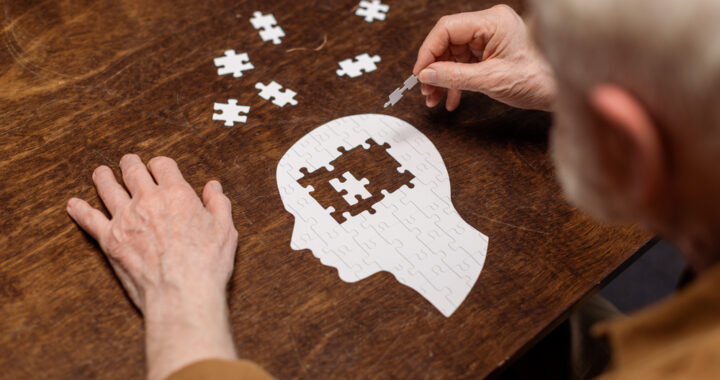Dementia is a progressive disorder that impacts the way that the brain functions, which usually affects older people.
In fact, one in 15 people aged over 65 are likely to experience dementia in their lifetime.
With the prevalence rate being so high (with 900,000 people currently living with dementia), getting the proper diagnosis as soon as possible can drastically help people to cope with the disease.
Therefore, Alzheimer’s Society’s Dementia Action Week (which runs from 16 – 22 May) concentrates on diagnosis this year, by raising awareness about the disease.
So, what are the warning signs of dementia?
Dementia differs between individuals and as it is a progressive disease, symptoms gradually worsen over time.
The most common early signs of dementia include memory loss, confusion or misunderstanding of things that the individual has seen or heard, difficulty concentrating and issues with language.
One of the biggest barriers for individuals seeking a diagnosis is the common misconception that memory loss is a normal part of getting older however, this is not the case!
Changes to memory can be a warning sign of dementia so should not be dismissed.
What are the different types of dementia?
When most people think of dementia, Alzheimer’s Disease usually comes to mind, but there are several different types of dementia.
There are four main types that present slightly different symptoms, which could also contribute to people not recognising the need for diagnosis.
According to Alzheimer’s Society, Alzheimer’s Disease is the most common form of dementia, with the onset usually being recognised by issues with memory, language or perception.
The second most common type is Vascular dementia, usually categorised by problems with problem-solving, decision-making and planning.
Another type is dementia with Lewy bodies (DLB), with the main symptoms being delusions, issues with movement, sleep and staying focused. This is caused by Lewy body disease.
The other type of dementia, frontotemporal dementia (FTD), usually has symptoms relating to personality and behaviour changes, along with issues with language.
Are you struggling with dementia or worried about a loved one? We are here to help. To find out more about our services, don’t hesitate to get in touch today.
Dementia is a progressive disorder that impacts the way that the brain functions, which usually affects older people.
In fact, one in 15 people aged over 65 are likely to experience dementia in their lifetime.
With the prevalence rate being so high (with 900,000 people currently living with dementia), getting the proper diagnosis as soon as possible can drastically help people to cope with the disease.
Therefore, Alzheimer’s Society’s Dementia Action Week (which runs from 16 – 22 May) concentrates on diagnosis this year, by raising awareness about the disease.
So, what are the warning signs of dementia?
Dementia differs between individuals and as it is a progressive disease, symptoms gradually worsen over time.
The most common early signs of dementia include memory loss, confusion or misunderstanding of things that the individual has seen or heard, difficulty concentrating and issues with language.
One of the biggest barriers for individuals seeking a diagnosis is the common misconception that memory loss is a normal part of getting older however, this is not the case!
Changes to memory can be a warning sign of dementia so should not be dismissed.
What are the different types of dementia?
When most people think of dementia, Alzheimer’s Disease usually comes to mind, but there are several different types of dementia.
There are four main types that present slightly different symptoms, which could also contribute to people not recognising the need for diagnosis.
According to Alzheimer’s Society, Alzheimer’s Disease is the most common form of dementia, with the onset usually being recognised by issues with memory, language or perception.
The second most common type is Vascular dementia, usually categorised by problems with problem-solving, decision-making and planning.
Another type is dementia with Lewy bodies (DLB), with the main symptoms being delusions, issues with movement, sleep and staying focused. This is caused by Lewy body disease.
The other type of dementia, frontotemporal dementia (FTD), usually has symptoms relating to personality and behaviour changes, along with issues with language.
Are you struggling with dementia or worried about a loved one? We are here to help. To find out more about our services, don’t hesitate to get in touch today.







